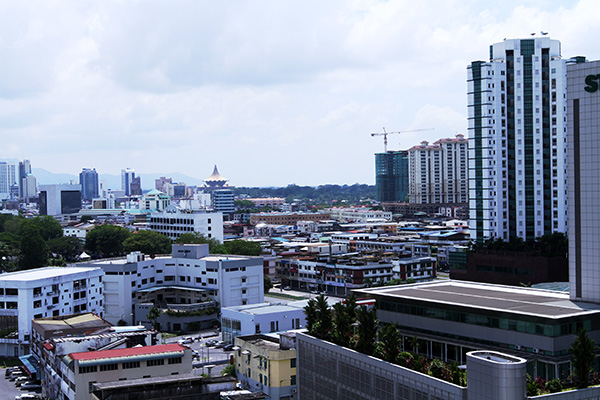
Another common wish in the property sector include an increase in the percentage of first time home loan to 95 per cent, 85 per cent for second homes, followed by 70 per cent for those buying their third properties, while the market hopes that first time home buyers loan tenure could be extended from 35 years to 40 years.
KUCHING: The Sarawak Housing and Real Estate Developer Association (Sheda) hopes to see a budget that can stimulate the local property market which has slowed down for the past several years mainly due to many potential buyers having difficulty in obtaining home financing.
With the Budget 2017 set to be announced tomorrow, Sheda believed that the upcoming budget would be more property friendly and financially friendly for in terms of property ownership as stringent home financing guidelines imposed by Bank Negara Malaysia (BNM) is one of the major challenges to developers.
“It is envisaged that if Budget 2017 is property friendly, especially with the relaxation of home financing guidelines and others, it would have a positive impact on the sale of property in Sarawak.
“As sale of property picks up, there will be more new property launches which signify the recovering of a healthy property market.
“Such transformation is necessary to propel the local property industry and economy in the state,” Sheda Kuching branch chairman Dr Christopher Ngui told The Borneo Post in an email interview.
In terms of finances in the property market, he noted that the reality is, the failure to secure housing loan by a prospective buyer from the banks would mean developers’ sale reverted to stock.
As such, some of the common factors the property market hopes for include a relaxation to home financing guidelines that could enable more potential buyers to qualify for their first time home loan.
He added that another common wish in the property sector include an increase in the percentage of first time home loan to 95 per cent, 85 per cent for second homes, followed by 70 per cent for those buying their third properties, while the market hopes that first time home buyers loan tenure could be extended from 35 years to 40 years.
Sheda also observed the market hopes for a change in the percentage of funds in employees provident fund (EPF) Account One and Two by increasing Account Two from current 30 per cent to 50 per cent of EPF balances in order to assist first time home buyers with more fund to pay for down payment.
From the developers’ perspective, Sheda hoped that the Budget 2017 would announcement measures that could reduce compliance costs of doing business such as utilities capital contribution cost, reduction in the requirement of open space and public use infrastructure to be built by developers in urban areas where land is scarce and expensive, and for the government to build low cost housing instead of private sector.
Sheda also hoped that measures to relax the current RPGT would be announced as it is currently on the high side.
“The relaxation is to spur property development industry involving non-residential properties at least,” said Ngui.
Aside from that, the association hoped that Budget 2017 would announce measures to allow affordable and current low cost homes planned for construction/under construction to enjoy zero-rated GST status.
It hoped for GST relief for all secondary property transactions to avoid further increase in the cost of building property with each transfer/transaction as well as GST relief order for all building materials that go into affordable housing to reduce construction costs, and to include a 50 per cent subsidy by Federal Government in capital contribution in all utilities capital contribution costs and connection charges levied.
In terms of tax, Sheda also hoped that the Budget would announce measures to allow Income tax deduction for housing loan interest as a necessary major expenses which has been practiced by other countries such as Australia. It also hoped for 100 per cent stamp duty exemption for first time home owners’ loan agreements, memorandum of transfer, deed of assignment, and reduction on the same for other residential properties.
Meanwhile, on possibilities that more measures would be announced on the issue of affordable housing, Ngui noted that as the price of houses has been on the uptrend for the past 10 years, it is increasingly more difficult for ordinary person to own a home due to increase in building materials and labour costs, authorities compliance costs, GST, inflation and others.
“Hence, affordable housing is vital for the benefit of general public to be able to own their own homes through the Government latest implemented PRIMA housing scheme,” he said.
Ngui added, “Sheda is supportive of a good housing policy such as PRIMA. However, PRIMA approved developers have special privilege to develop and build affordable housing with higher density in Sarawak.
“Strata development accords 50 units verses 30 units and landed property approved density is 12 units verses 10 units for PRIMA developers and non PRIMA developers respectively.
“In addition, PRIMA developers are not subject to build mandatory SPEKTRA Lite and Medium housing for development of 10 acres or more of landed properties and four acres or more for strata development.”
As such, he said, “Sheda is of the opinion that property developers should not only be given the incentive by the Government but also the same level of playing field to encourage them to build more affordable housing in Sarawak.”
